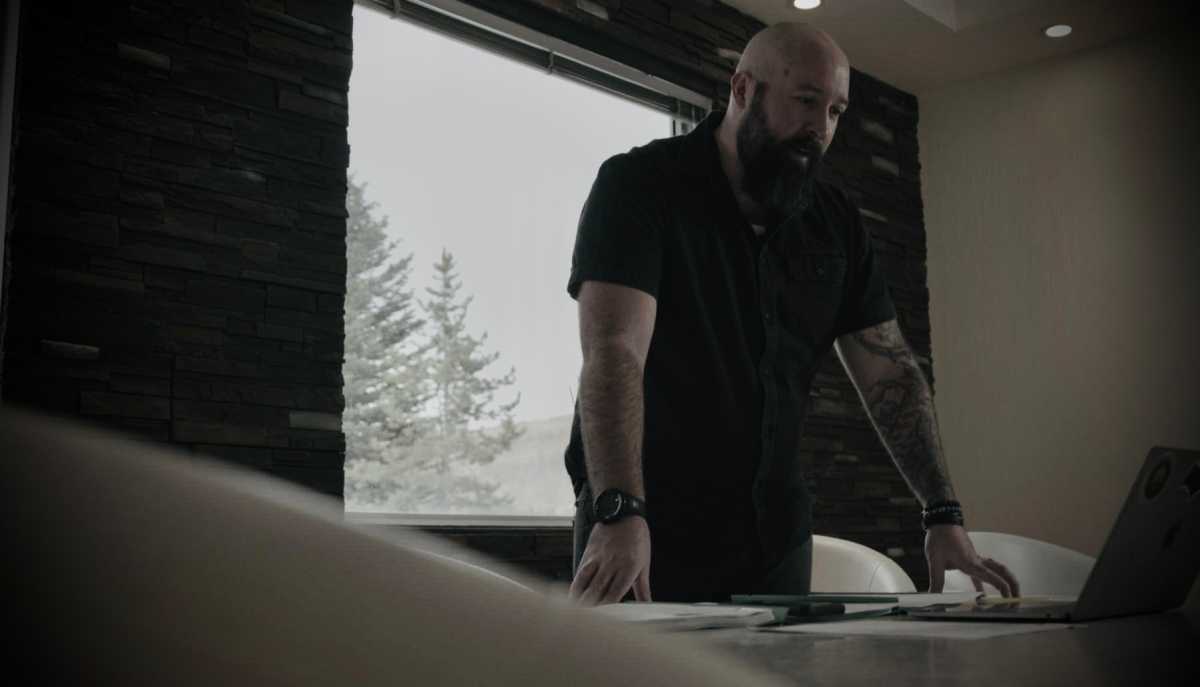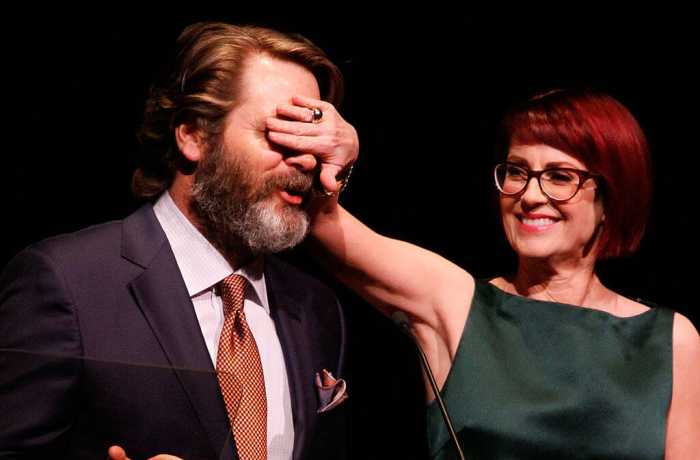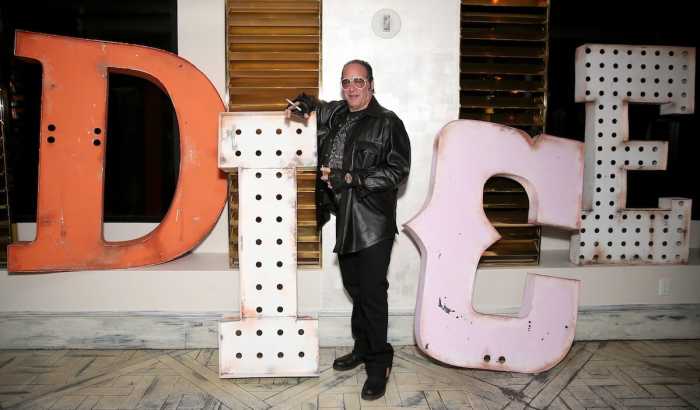Satanic panic, an in-just incarceration and a virtually unsolved case are not headlines that are new pieces of information—but can examining them help us learn a bit about our own present and future? Although that’s not the reason behind James Buddy Day’s latest docuseries (executive produced by Blumhouse Television), ‘Fall River,’ based on the 1979/1980 murders in a Massachusetts’ town linked to devil worship, the documentarian examines a case that put two people behind bars. But in reality the conviction may have silenced more innocent people than evil ones.
Day is here to give them that voice.
What the Canadian filmmaker, writer and producer—who has interviewed the likes of Charles Manson—hopes is that action can be taken for Carl Drew, Robin Murphy and the three women who lost their lives. But on a broader scale, this series might just put justice front and center to be carried out in response to mistakes made in the past.
Day sat down with Metro to discuss what went into making the four-part series ‘Fall River.’
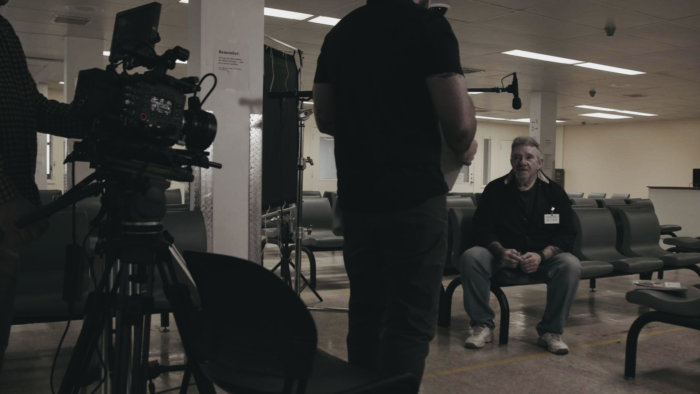
You must hear about a lot of cases. What makes you hone in on one to make a series?
I do hear about a lot of cases. For me, when I take on one of these cases, it’s years of my life. I just get obsessed with them and go deep into them and live with the people and the case. Because something you have to remember: You don’t want these cases to be sensationalized, and for the people who have lived them, they are very personal and very important to them—as they should be.
So when I take on any true crime case and spend years looking at it, I want to make sure I can do something to elevate it or forward it, whether it’s just telling the story and that helps someone else, or moving something forward legally. I want to make sure that my involvement in this isn’t some imitational re-telling, I want it to actually [do] some good for those who are personally involved.
How did you first hear about this particular case?
About four years ago, I just read a random article about the Fall River Satanic Cult Murders, and I’ve heard of a lot of true crime cases and I hadn’t heard of this one. At the time, Carl Drew had a website and Facebook page, and he kind of gave his account and said he was innocent, and I thought that was intriguing. I reached out to him and said I wanted to know more. He got back to me right away and over the next couple of years, I started to get to know him, look through his case files, get to know his attorney and people in his life and kind of got involved that way…Years later we have a documentary.
What flipped your switch to begin to believe Carl Drew?
It’s not that I didn’t believe him at first… it’s just, I talk to people in prison a lot and every single person says they’re innocent. I’ve interviewed Charles Manson and he was adamant that he was innocent. So, that’s nothing new, but when I really got into Carl’s case, it was pretty apparent that there was an injustice done here.
How I came to that conclusion was going through the trial transcripts, the case files, contacting the Fall River PD and they gave me their investigative files, and I looked through those. When you really start to look at the case one page at a time and read what happened, it’s not that hard to come to that conclusion that they got it wrong.
It seems as though lately, we see plenty of cases where an injustice has been done. Why these stories specifically important to know about?
I think it speaks to the whole idea of justice. You want to make sure that if someone is going to prison for the rest of their lives, they’re going there for a good reason. Carl Drew is in prison without the possibility of parole, so the only way he leaves prison is if he dies. So, if that’s the case, as an American (and I’m from Canada), you should be 100 percent sure that he’s there for the right and just reasons.
The same thing goes for Robin Murphy, she went to prison when she was 17. The deal she made with the prosecution was that she would testify and that she would most likely be released within 12 years, and now it’s 2021 and she’s still there. So, there’s a lot of things to look at. Then when you look at Robin Murphy’s case, she went through this horrible trauma that affected who she was and what she was doing and why she was doing it and it was never really taken into account.
So I think the crime culture reframes a lot of these questions and we look back on old cases and old decisions and really have to decide if that’s justice or not.
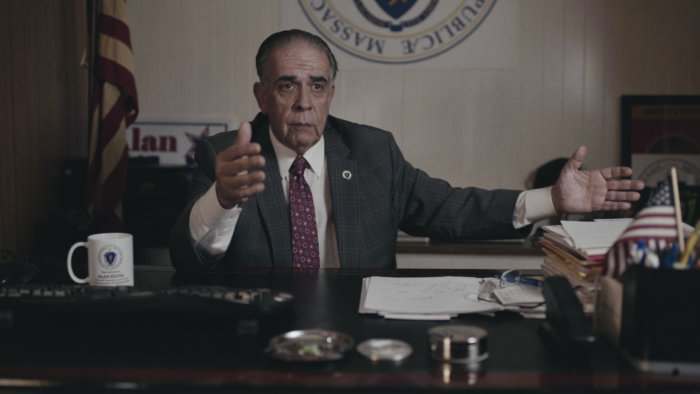
What about cases with satanic panic? Do you think that fueled this injustice?
After ‘Michelle Remembers’ [a 1980 book by Lawrence Pazder and Michelle Smith] came out about a satanic cult in Canada—which has now been debunked—the idea of satanic cults hidden around America became very resident. So, you started to see all sorts of men and women come forward and then children and their parents coming forward saying their children had been victims of these secret, underground cults that were hidden. That went on for over a decade. [Mostly all] of those cases have been proven to be completely false in retrospect, but it was this moral panic that took over America that came essentially from Canada.
What’s interesting about the satanic panic now, is that you’re basically seeing it again with QAnon. The QAnon story is the satanic panic, the idea that there are secret satanic people doing things to children that are hidden amongst us…And that literally was the story line for what happened with satanic panic in the 1980s.
Do you think examining a case in the past will help us take a better look at our present and future?
On a practical level: An injustice was done to Carl Murphy, an injustice was done to Robin Murphy and an injustice was done to three young women Doreen Levesque, Barbora Raposa and Karen Marsden, and their families. So I’m very much hoping that the powers in Fall River watch the documentary and take proactive steps to undo those injustices.
From a broader perspective, yeah, I think we have to look at our history to understand our present and try to not repeat the same mistakes of the satanic panic. To your point, the mistakes of satanic panic are being made right now, and most people don’t even realize that they are being repeated…So, it’s important to talk about things that happened in our history so we can learn from them.
‘Fall River’ premieres May 16 at 10 p.m. on Epix.



